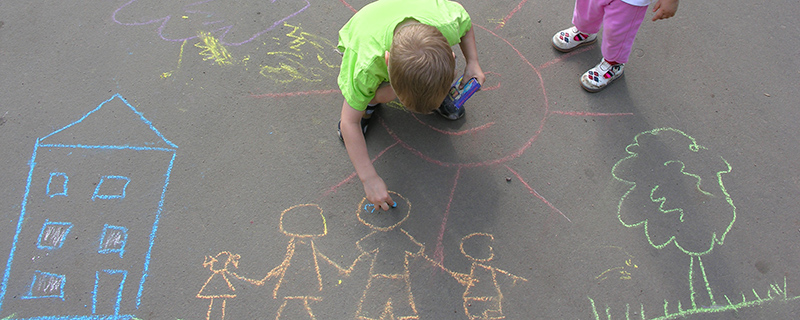
Adopted and Wondering: Drawing Out Feelings
Marge Eaton Heegaard, 2007
Adoption is a life-altering event – a change that can create loss and grief as well as joy. If the feelings created by change are not addressed, children can develop problems with identity, trust, control, self-esteem, and intimacy. This book uses the art process to help children understand and express their feelings about being adopted. When facilitated by a trained adult, its creative and interactive drawing activities can help children: understand adoption, cope with grief from loss, talk about life before adoption, strengthen identity, communicate silent concerns, and gain trust for the future. (Ages 6 to 12)
Adoption is a Family Affair: What Relatives and Friends Must Know
Patricia Irwin Johnston, 2001
Don’t you wish that there was an easy way to explain the hows and whys of adoption to your parents and the other members of your family? This book’s conversational tone and wealth of information will turn family members into adoption experts (and supporters!) in no time.
Adoption Lifebook: A Bridge to Your Child’s Beginnings
Cindy Probst, 2007
How do you and your child talk about her/his life before you became a family? Are there parts of your child’s early life story that you find difficult to explain? Do you ever wonder about which words to use and where to start? This workbook, created especially for international adoptive families, will show you how to assemble the perfect Adoption Lifebook to record your child’s memories and experiences.
Communicating with the Adopted Child
Miriam Komar, 2000
This book focuses on the importance of family conversation and the power of speech in providing both information and emotional support to the adopted child. Issues include discipline, sexuality, self-esteem, dual identity, the right time to talk, and more. Utilizing examples drawn from interview, case studies, and extensive correspondence, as well as from leading studies in the fields of psychology, sociology, and social work. Dr. Komar’s book gives reassuring perspective on some of the most troubling issues of adoption.
Great Answers to Difficult Questions about Adoption: What Children Need to Know
Fanny Cohen Herlem, 2006
Children who find out they are adopted have many questions that are difficult for a parent to answer. This book explores children’s thoughts and feelings and provides parents with guidance on how to respond to difficult questions. The author covers all the common questions that children ask and provides sensitive, candid answers in a way that children will be able to understand and relate to. The book recognizes the emotions and reactions of everyone in the family and includes separate conclusions for parents and children.
Lifebooks: Creating a Treasure for the Adopted Child
Beth O’Malley, 2011
Are you looking for guidance in creating a lifebook for your baby or child? This book will inspire you to begin your child’s memory book and then walk you through the process, page by page. Learn what you need to record for your child’s needs, both now and in twenty-five years. Personal lifebook stories and full-length examples are included. Lifebooks: Creating a Treasure for the Adopted Child is appropriate for any type of adoption and also for foster care.
Talking to Your Child About Adoption
Patricia Martinez Dorner, M.A., L.P.C., 1990
Covering infancy through the teen years, Talking to Your Child About Adoption guides adoptive parents as they learn about adoption issues and how to comfortably discuss them. The emphasis of this book is that communication about adoption is an ongoing process. This book is helpful for friends and family.
Talking with Young Children about Adoption
Mary Watkins and Susan Fisher, 1993
Current wisdom holds that adoptive parents should talk with their child about adoption as early as possible. But no guidelines exist to prepare parents for the various ways their children might respond when these conversations take place. In this wise and sympathetic book, a clinical psychologist and a psychiatrist, both adoptive mothers, discuss how young children make sense of the fact that they are adopted, how it might appear in their play, and what worries they and their parents may have. Accounts by twenty adoptive parents of conversations about adoption with their children, from ages two to ten, graphically convey what the process of sharing about adoption is like.
Telling the Truth to Your Adopted or Foster Child: Making Sense of the Past
Betsy E. Keefer and Jayne E. Schooler, 2000
There are three overriding principles guiding the contents of this book: the needs of the adopted child are paramount; honesty is essential to integrity; and love for children and hope for their future as well-adjusted, secure individuals should be the bedrock underlying talks about adoption. Telling the Truth to Your Adopted or Foster Child will equip you with the knowledge and tools you will need for a lifetime of communication about the complex, troubling, and sometimes painful aspect of your child’s past.